Iranian state broadcaster hit as Iran urges Trump to make Israel halt war
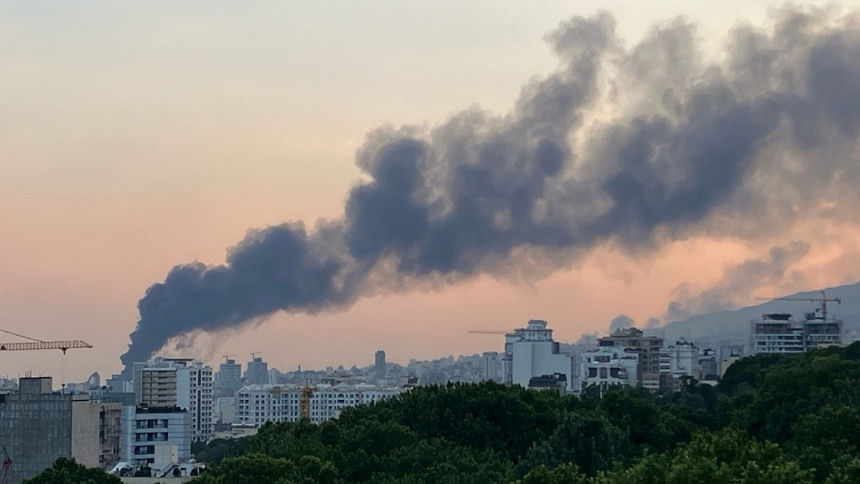
- Iran calls for ceasefire, offers nuclear negotiation flexibility
- IAEA reports extensive damage to Iran's uranium enrichment plant
- Iran death toll at 224, Israel death toll at 24, officials say
- Oil prices dip, easing supply disruption fears
An Israeli strike hit Iran's state broadcaster on Monday while the head of the UN nuclear watchdog indicated extensive damage to Iran's biggest uranium enrichment plant and Iran called on the US to force a ceasefire in the four-day-old aerial war.
Late on Monday, Israel said it hit Iran's broadcasting authority, and footage showed a newsreader hurrying from her seat as a blast struck. Iran's state news agency also reported the strike. Israel's military said the building also served as a communications centre used by Iran's armed forces.
Even as Iran called for the US to force a ceasefire, it pierced Israeli air defences with a damaging volley of missile strikes and Israel persisted in its bombing campaign.
Sources told Reuters that Tehran had asked Oman, Qatar and Saudi Arabia to press US President Donald Trump to use his influence on Israeli Prime Minister Benjamin Netanyahu to push for an immediate ceasefire.
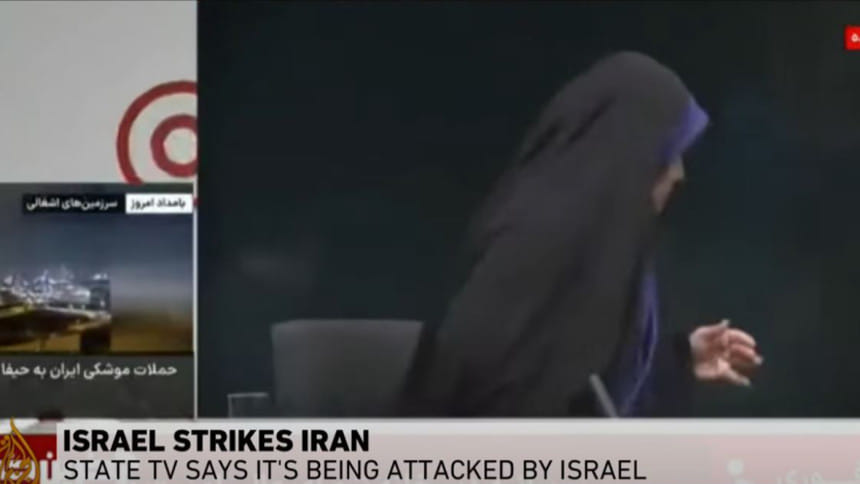
In return, Iran would show flexibility in nuclear negotiations, said the two Iranian and three regional sources.
"If President Trump is genuine about diplomacy and interested in stopping this war, next steps are consequential," Iran's Foreign Minister Abbas Araqchi said on X.
"Israel must halt its aggression, and absent a total cessation of military aggression against us, our responses will continue. It takes one phone call from Washington to muzzle someone like Netanyahu."
Asked if he would agree to talks should Trump want that, Netanyahu told reporters that Israel was committed to removing the threats of both nuclear weapons and ballistic missiles.
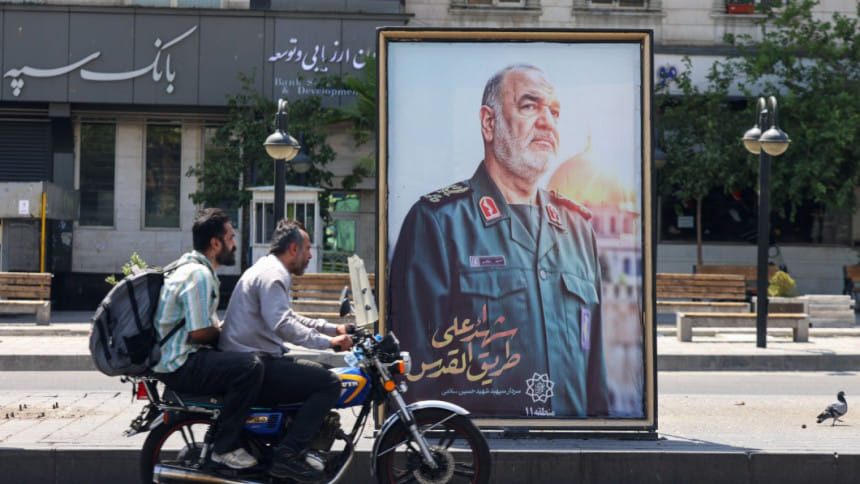
"If this can be achieved in another way - fine. But we gave it a 60-day chance," Netanyahu said.
Speaking to Reuters on Friday, the first day of Israel's assault, Trump said he had given the Iranians 60 days to come to an agreement to halt uranium enrichment and that the time had expired with no deal.
Talks between the United States and Iran, hosted by Oman, had been scheduled for Sunday but were scrapped, with Tehran saying it could not negotiate while under attack.
Iranian media said Iran was preparing for the "largest and most intense missile attack" yet against Israel, including against military and intelligence targets.
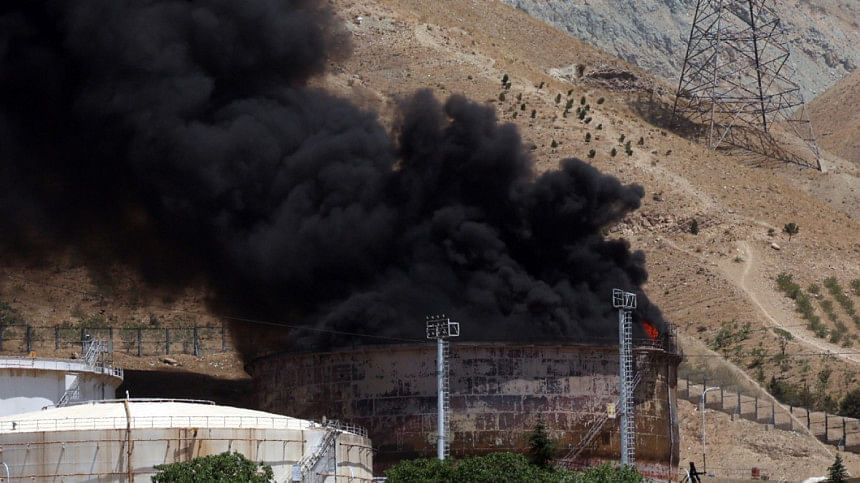
NATANZ DAMAGE
Israel launched its air war with a surprise attack that killed nearly the entire top echelon of Iran's military commanders and its leading nuclear scientists. It says it now has control of Iranian airspace and intends to escalate the campaign in coming days.
Israel said it hit Iranian F-14 fighter planes at Tehran airport on Monday, and its airstrikes have also put at least two of Iran's three operating uranium enrichment plants out of action.
Rafael Grossi, head of the International Atomic Energy Agency, told the BBC on Monday it was very likely all the roughly 15,000 centrifuges operating at Iran's biggest uranium enrichment plant at Natanz were badly damaged or destroyed because of a power cut caused by an Israeli strike.
There had been very limited or no damage at the separate Fordow plant, he said.
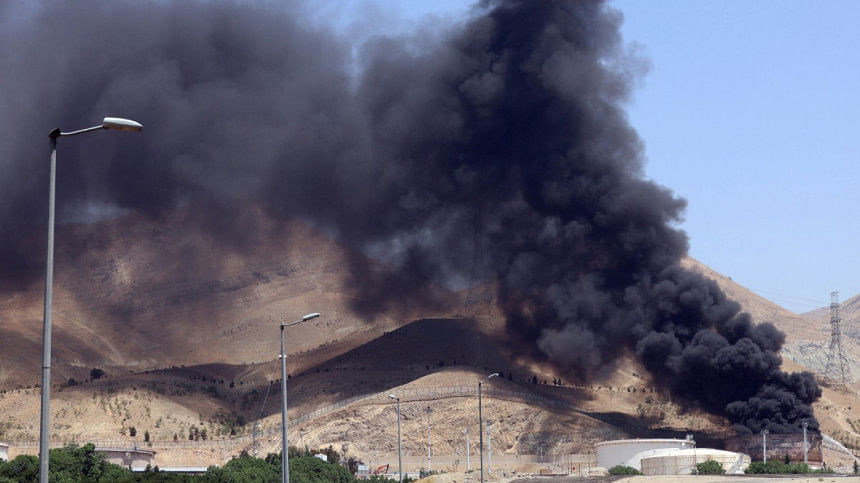
Tehran for the first time in decades of shadow war and proxy conflict fired missiles from Iran that pierced Israeli defences in significant numbers and killed Israelis in their homes.
In Israel, 24 people have been killed so far in Iran's missile attacks, all of them civilians. Round-the-clock television images showed rescuers working in ruins of flattened homes.
"It's terrifying because it's so unknown," said Guydo Tetelbaum, 31, a chef in Tel Aviv who was in his apartment when the alerts came in shortly after 4:00am (0100 GMT). He went to a public shelter and was inside when the door was blown in.
Iran says more than 224 Iranians have been killed, most of them civilians. Media published images of wounded children, women, and the elderly from cities across the country.
Iranian state TV broadcast scenes of collapsed presidential buildings, burned-out cars, and shattered streets in Tehran. Many residents were trying to flee the capital, describing queues for petrol and bank machines that were out of cash.
"I am desperate. My two children are scared and cannot sleep at night because of the sound of air defence and attacks, explosions. But we have nowhere to go. We hid under our dining table," Gholamreza Mohammadi, 48, a civil servant, told Reuters by phone from Tehran.
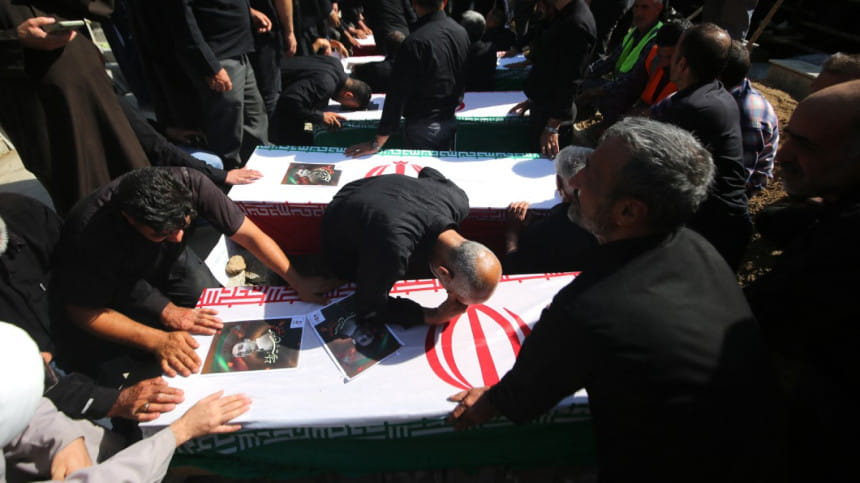
Trump has consistently said the Israeli assault could end quickly if Iran agrees to US demands that it accept strict curbs to its nuclear programme.
"I'd say Iran is not winning this war, and they should talk, and they should talk immediately before it's too late," Trump said at a G7 meeting of world leaders in Canada.
On Monday, Iranian lawmakers floated the idea of quitting the nuclear non-proliferation treaty, a move bound to be seen as a setback for any negotiations. Iran has always said its nuclear programme is peaceful, although the IAEA declared last week that Tehran was in violation of its obligations.
'PAYING THE PRICE'
Before dawn on Monday, Iranian missiles struck Tel Aviv and Haifa, killing at least eight people and destroying homes.
Iran's Revolutionary Guards said the latest attack employed a new method that caused Israel's multi-layered defence systems to target each other so missiles could get through.
Israel's Haifa-based Bazan energy group said its power station had been significantly damaged in an attack that killed three employees and forced its refinery facilities to shut down.
Oil prices slipped $1 per barrel on Monday in volatile trading after reports that Iran is seeking an end to hostilities, raising the possibility of a truce and easing fears of a disruption to regional crude supplies.
The sudden killing of so many Iranian military commanders and the apparent loss of control of airspace could prove to be the biggest test of Iran's system of clerical rule since the 1979 Islamic Revolution.

 For all latest news, follow The Daily Star's Google News channel.
For all latest news, follow The Daily Star's Google News channel. 


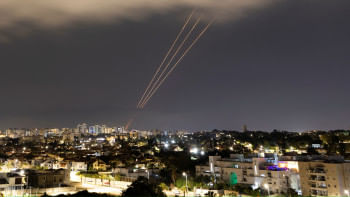










Comments